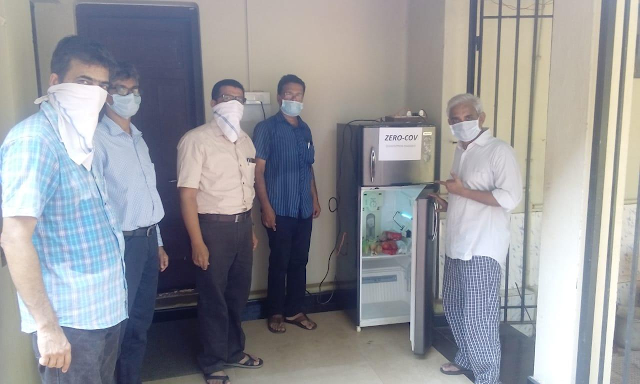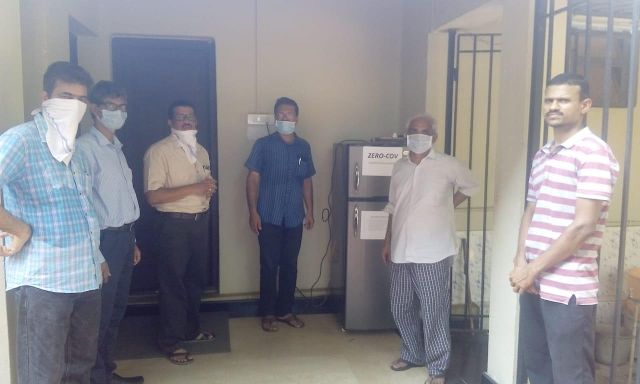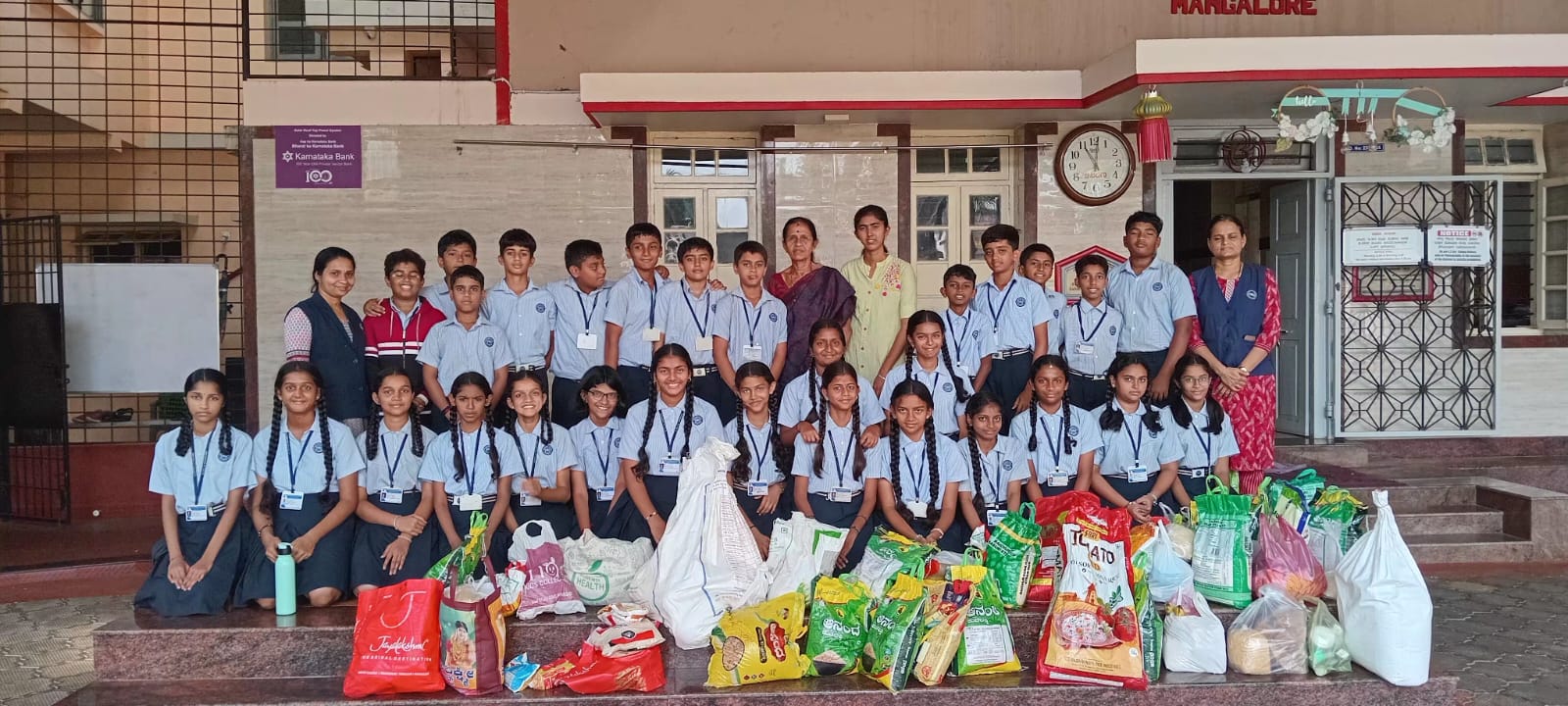NITK Professor develops ‘ZERO-COV ’ sterilizing chamber for residences and offices

 |
|
ZERO-COV released by Prof K. Uma Maheshwar Rao (Right) Director NITK Surathkal
|
Mangaluru, April 14: A team of researchers at NITK Surathkal has utilized the Lockdown period in research that would help in controlling the spread of the virus.
Dr. Arun M Isloor, professor and head, department of Chemistry, National Institute of Technology Karnataka, (NITK) Surathkal along with research scholar Syed Ibrahim have now come up with a simple technique to disinfect the Personal Protective Equipment (PPE) kits, surgical masks, vegetables, packed food items, currency notes and day to day items without getting any damage to them.
The chamber made out of an unused refrigerator, using three Ultraviolet C lamps, each one that consumes 11 watts of electricity has been named ZERO-COV.
Masks, face shields, and PPE kits are highly being demanded by doctors and medical staff. In some places, the medical staff even staged a protest to get these PPE kits to deal with COVID-19 patients. The researchers said that most affected nations with the pandemic also faced a scarcity of these kits.
The purpose of the chamber is to control surface contamination of bacteria and viruses including COVID-19.
 |
|
(From Right to left) Mr Syed Ibrahim, Prof K. Uma Maheshwar Rao Director NITK, Prof Arun M. Isloor, Prof Sripathi Acharya, Prof. M.S. Bhat & Prof Ananthanaraya
|
The chamber built out of an old refrigerator was handed over to Prof K. Uma Maheshwar Rao, Director, NITK and his wife Neeraja Rao, headmistress, Kendriya Vidyalaya No 2, Yekkur at their residence on Monday.
Prof. MS Bhat, dean, faculty welfare, Prof Anantanarayanan deputy director and Prof Sripathi Acharya, dean research were present during the event.
Learning from the experiences from the reports from European countries and the USA that had shown the health care providers were washing these disposable items themselves for reuse, the NITK researchers decided to come up with a simple solution to fight this crisis in India. Moreover, this could be used in every household, as a preventive measure in the spreading of COVID-19.
With the wide spreading of COVID 19 cases, people are advised to wash their hands, keep their surroundings clean and maintain social distancing. But items purchased from the market such as bottles, vegetables, books, ready food items, toys, and currency notes might have been contaminated by germs including Covid19.
Things like vegetables can be disinfected by dipping in a disinfectant solution. But this is not possible for items like currency notes, books, etc. “By placing items including vegetables, currency notes in the disinfection chamber for 15 minutes one can ensure destruction or inactivation of bacteria and viruses by 99.9%,” Dr. Isloor said.
“The technology used here is UV-C radiation, which has a wavelength of 254 nanometers. It can destroy the nucleic acids of any germs present on the surfaces. UV technology is well proven and accepted by the scientific community and WHO has recommended this technology for surface disinfection. This is commonly used as disinfection in hospitals, laboratories, and water treatment plants,” he said.
Dr. Isloor also said that after switching on the ZERO-COV, it must be closed completely as the direct UV-C radiation on the human body can cause harmful effects.
“A small chamber prepared using a single UV lamp will cost around Rs 500. This chamber can be made up of any unused material made of metal, plastic or wood. This can be placed at the entrance of the house or office,” Dr. Isloor said.
He says that technology does not demand any of the toxic agents and chemicals and it is easy to carry other places.
Dr. Isloor said he is ready to technically assist any common residents who want to construct this on their own.
Very recently they have demonstrated production of hand sanitizers as part of NITK’s community and social service activity. The sanitizers were distributed among staff of NITK, police, media representatives as well as officials from the district administration.





